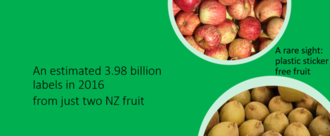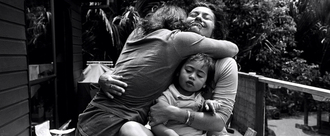-
Help NZ Thyroid Patients Get Treatment That WorksThyroid disease is more common than diabetes and heart disease. The World Health Organisation puts the world’s population of diagnosed thyroid patients at >750 million. New Zealand’s diagnosed population is >146,233. Many more are misdiagnosed or experience mismanaged care. Common symptoms include debilitating unexplained fatigue, unexpected weight gain/loss, depression, miscarriage, cold/heat intolerance and brain fog. Left untreated thyroid disease influences the onset of other diseases such as cancer, heart disease, and dementia; and in some cases early death. In the 1940s and 1950s doctors and endocrinologists diagnosed on signs and symptoms, prescribing treatments that worked. Then came the arrival of the TSH blood test and a synthetic drug called Levothyroxine which changed the way many doctors and endocrinologists diagnose and treat patients. As a result there is a large number of patients for whom these diagnostic and treatment approaches do not work. For example, all too often: - Doctors and endocrinologists miss altogether or misdiagnose thyroid disease in patients because they don’t recognise the signs and symptoms. Patients are often tested unnecessarily for other illnesses imposing cost on them and District Health Boards. - Patients who are prescribed Levothyroxine often experience ongoing symptoms. Alternative thyroid treatments containing a thyroid hormone called T3 work better for many of these patients. Most are never offered this treatment even though it is available, safe and effective. It is now difficult to find a NZ doctor or endocrinologist with the right knowledge to help thyroid patients. Those NZ doctors who are successfully diagnosing and treating thyroid disease need greater support; and the other doctors and endocrinologists need further education. By signing this petition you can help us change this. Each signature represents a patient, or a person who loves a patient who has been misdiagnosed, mistreated or dismissed by their endocrinologist or doctor. Thyroid Association of New Zealand is a patient-to-patient support group, started in July 2008. We are a voluntary organisation, whose founding members came together when Glaxo Smith Kline changed their Eltroxin formulation, causing adverse reactions among users. For more information about the thyroid or help finding a doctor who can help, visit us at: http://www.thyroidnz.org or Facebook at: https://www.facebook.com/groups/thyroidnz/. References: To read just some of the statistics and clinical evidence supporting our petition go to: http://www.thyroidchange.org/related-research.html or email us at: [email protected].4,078 of 5,000 SignaturesCreated by Thyroid Association of New Zealand

-
Say NO to More Pokies for Sky City Casino HamiltonSky City Casino Hamilton are requesting that the Gambling Commission allow an increase in the number of pokie machines in their Hamilton Casino. An additional 60 machines would bring their total to 399, almost half the machines in Hamilton. The Hamilton City Council’s sinking lid policy should see levels reduced not increased. Hamilton City Council has no jurisdiction on the decision to grant the additional gaming machines but is one of only 4 groups invited to comment. Residents are not being given the opportunity to voice their concerns regarding Sky City’s request to Government for additional pokie machines. In total Hamilton currently has 745 gambling machines. - The revenue that Sky City Casino earned mostly from it's 339 pokie machines in the last financial year was approximately $39m - $698,000 or 1.8% was returned to the wider Waikato community in grants.” - Department of Internal Affairs figures show that the City’s other 406 pokie machines (with all the problems they also cause) had a combined revenue of approximately $25m - $10.5m or 42% was returned to the wider Waikato community. So whichever way you look at it, and even if you mistakenly thought pokie machines do no harm, 60 more machines at the Sky City Casino represent a very poor return for the community and goes against the well thought out policy designed to protect us from the expansion of gambling machines and their undeniably addictive attraction to many Hamiltonians. https://www.radionz.co.nz/news/national/380237/hamilton-mayor-moves-to-block-sky-city-pokies-expansion Addiction to pokies https://interactives.stuff.co.nz/2018/01/whos-in-charge-of-michael/223 of 300 SignaturesCreated by Deborah Fisher
-
No Means No - Show NZ Cricket condemns sexual violenceScott Kuggeleijn clearly demonstrated a lack of respect for women during his rape trials, and has failed to express any concerns over his behaviour since. He was found not guilty, in cases which many New Zealanders watched via the media in absolute horror. How many times do women have to say no to sex, before we believe them? When Scott Kuggeleijn is picked for New Zealand, what does this mean for cricket fans? Survivors of rape? What does this mean for women in New Zealand? And what does this mean for his team-mates? Having sportsmen represent New Zealand's top teams who show these kinds of views is embarrassing, and in 2019, just unacceptable. Other countries have stopped selecting men with similar views - India https://bit.ly/2R0z2XA - Ireland https://bit.ly/2RDwfox - England https://es.pn/2Dkq43K Our national team says something about all of us. C'mon NZ Cricket, show us that you're not part of New Zealand's sexual violence problem - and that you want the support of all New Zealanders. Other reading: Sexual Politics Now https://bit.ly/2FAxL8k The Spinoff https://bit.ly/2TYcNDy Stuff https://bit.ly/2Cqer9G1,254 of 2,000 SignaturesCreated by Sandra Dickson
-
PM Jacinda Ardern: Prevent violence against women and invest in support for victims and survivorsIt’s difficult to know how to express the horror so many of us feel about what happened to Grace Millane. She was 21, on the trip of a lifetime, with her whole life ahead of her… and then she was gone. When women are murdered, it is a reminder that our safety is an illusion. We have some of the worst statistics for sexual violence and violence against women in the OECD. Most of that violence is at the hands of our men. For some time people at the front line with first-hand experience of violence against women, and those who support them, have been calling for the nation to do some soul-searching and to seek solution-based actions. Women going on solo adventures or meeting new people for dates are not the problem here. Men who commit acts of violence against women are. But violence is preventable if we work together at an individual, whānau, community, regional and national level. Most decent New Zealanders will be devastated by Grace’s death. The vast majority of us feel horrified for her parents and her family, and send them all our love. But we must open our eyes to the dangers facing women in our country. We must remove our rose-tinted glasses. The government and men of New Zealand must take action; for Grace and for all of the women who have lost their lives to violence in our country. Rest in peace and aroha, Grace. On behalf of all New Zealanders, we are so very, very sorry. We promise to do better as a nation. *** An open letter with the same asks has already been sent to PM Jacinda Ardern and was published in the New Zealand Herald on Saturday 15 December. See the news story here: http://bit.ly/2ULCWGU See the letter that was sent to PM Jacinda Ardern here: http://bit.ly/2zZi9qp For a list of other ways you can take action and organisations you can donate time or money to, visit www.HelpWahine.org.nz.7,416 of 8,000 SignaturesCreated by Team ActionStation

-
Protect Timaru's Penguins — Improve Road Safety Along Marine ParadeLast night (08/12/28) a little penguin (kororā) was hit and killed by a car on Marine Parade in Timaru. The incident happened in front of 90 tourists and locals (including children) who had come to watch the penguins come ashore. The bird was of breeding age and its mate was seen calling for over an hour after it was killed. It is not known whether the pair had eggs or chicks on the nest, however, this is likely to be the case at is currently breeding season for kororā. Forest & Bird South Canterbury is calling on Timaru District Council to use this tragedy as an opportunity to reduce the speed limit to 30 km/hr, install judder bars or road islands, and consider closing the road to non-port-related traffic after dark. The current speed limit is 50 km/hr but our members have witnessed people driving at excess speeds along Marine Parade again and again. We often take down the registration numbers of vehicles that we see speeding and report them to local police, yet people continue to speed past — sometimes at up to 100 km/hr. We are exceptionally lucky to have this breeding colony of endangered penguins (kororā) so close to our town centre. After a short drive or walk, we can watch them come ashore — undeterred by traffic and noise from the port just metres away. The penguins are an increasingly important part of our local economy. Last year, they attracted up to 100 visitors every night, with some people visiting specifically to see them. This is a safety risk. Not just to the kororā, but also to the people who stand along Marine Parade to watch them come ashore. The Timaru District Council must keep visitors and penguins safe from dangerous driving by reducing the speed limit to 30 km/hr, installing judder bars or road islands, and considering the closure of the road to non-port-related traffic after dark. We would also like to see local police targeting speeding drivers with regular patrols in the area.1,467 of 2,000 SignaturesCreated by Kimberley Collins

-
Safe parking for the staff of Middlemore HospitalThe cars of Middlemore Hospital staff are frequently broken into, causing distress and unexpected costs for the staff. This happens in the staff parking lots which are too easily accessible for people from outside the hospital. Windows are smashed, things are stolen, steering wheels are broken, ignitions damaged. The fact that this mostly happens at night is very stressful for the staff who finish a shift at midnight and then often cannot drive themselves home because their cars have been damaged. There is also not enough parking for all the staff at the hospital.2,348 of 3,000 SignaturesCreated by Anna Majavu
-
No more plastic fruit or vegetable stickers for NZ produceRemoving plastic labels is publicly supported. As at 24 November 2018 86% of Stuff readers think plastic stickers on fruit should go.^^ Just two NZ produced fruit alone in 2016 resulted in an estimated 3.98 billion plastic labels.*** Plastic stickers also cause issues at compost facilities.^^^ This is unnecessary personal hassle for consumers and unnecessary use of plastic and environmental pollution. * https://www.nzherald.co.nz/nz/news/article.cfm?c_id=1&objectid=10352393 ^ e.g. https://www.theguardian.com/sustainable-business/2017/jan/16/ms-and-swedish-supermarkets-ditch-sticky-labels-for-natural-branding ** http://www.hortnz.co.nz/news-events-and-media/media-releases/new-zealanders-want-country-of-origin-labelling-on-fruit-and-veges/ *** In 2016 124m trays of Zespri kiwifruit were produced and 350,000 tonnes of apples. http://www.freshfacts.co.nz/files/freshfacts-2016.pdf ^^ https://www.stuff.co.nz/auckland/105890179/Fruit-stickers-are-overused-say-the-creators ^^^ https://modernfarmer.com/2018/03/little-produce-stickers-are-big-waste-problem/301 of 400 SignaturesCreated by Adam Crisp
-
Double investment in drug treatment in this year’s budgetBy mid-December the Government will have made some important decisions about next year’s Budget. First in their minds should be a focus on improving the health and wellbeing of all New Zealanders - especially those who are most vulnerable. Unfortunately, by the time the Government makes their budget decisions there’s also a good chance more people will have tragically died from the use of synthetic cannabinoids. There have been 50 deaths at least over the past 18 months, and there is no chance this public health crisis will fix itself. Continuing to punish people who use drugs will only make things worse. We have a plan to turn things around. If the government makes the right funding decisions now, and follows this up by legislating for a health-based approach to drug use, we can save lives. Investing in health and treatment also makes economic sense. An economic report released in October, "Estimating the Impact of Drug Policy Options", found that if we invest $150million extra in drug-related harm reduction and treatment programmes, this would return a social benefit for New Zealand of at least $225million. Sign the petition to ask the Prime Minister to ensure that next year’s Budget reflects just how urgent this crisis is. Let’s ensure that everyone can access help when and where they need it. This petition is supported by JustSpeak, ActionStation, the New Zealand Drug Foundation, Hāpai Te Hauora, the Needle Exchange and Te Rau Matatini. We’ll be doing more work together to ensure the government treats drug use as a health and not a criminal issue in the lead up to election 2020.582 of 600 SignaturesCreated by Tania Sawicki Mead
-
Put children and whānau wellbeing at the heart of welfareIn good times and in hard times, we should all have the dignity and security of a roof over our head, healthy kai on the table and the essential things we need. A stable whare (house) is the foundation for a good life. None of us can go about our lives, raise a family, go to work or stay healthy without a warm, dry and safe place to call home. But right now, due to the way in which successive governments have run down the welfare system, and taken a hands-off approach to the housing market, New Zealand’s homes are some of the least affordable in the industrial world. Families are having to choose between rent and food. When people lose their job, get sick or end a relationship and then can’t keep a roof over their heads, we are seeing the failures of an unkind, unjust and unbalanced economic system. When corporations are taking in record profits, but there hasn’t been a real increase in income support for a generation, and more and more people can’t make ends meet, our society is out of balance. These statistics should both astound and compel us into action: ➡️ The wealthiest 20 percent of people in New Zealand hoard 70 percent of the wealth, while the poorest 40 percent have just three percent. ➡️ Two New Zealand billionaires have more combined wealth than the poorest 30 percent of people in this country. ➡️ Over 50 percent of all people in New Zealand who receive an Accommodation Supplement to pay for their housing needs are spending more than half their incomes on housing, while four out of every five renters cannot afford to pay their rent comfortably. ➡️ The median Pākehā has $114,000 of wealth. The median Māori has $23,000. That’s a gap of $91,000. The median Pasifika person has even less at $12,000. ➡️ Between 2004 and 2010 the wealth of the richest one percent - about 34,000 people - increased from $94billion to $147billion; that’s $4,323,529 per person. Meanwhile the poorest 10 percent of people saw their net debt increase from $5.7billion to $7.4billion. CEO pay is increasing at almost five times the rate of the average worker. ➡️ 27 percent of New Zealand’s children live in poverty, where poverty is defined as having less than 60 percent of the national median household income (after housing costs), while six percent (70,000) of all children live in severe hardship. ➡️ There are now at least 41,000 homeless New Zealanders, more than half of whom are younger than 25. There is too much wealth in too few hands while everyday New Zealanders struggle to make ends meet and the cost of living continues to soar. We need government intervention to end the poverty trap and rebalance our economy. We need government intervention to ensure that everyone one in this country has enough pūtea (income) to live with dignity and participate fully in the community. If we are to fulfil the Coalition Government’s goal for Aotearoa to be the best place in the world to be a child, then all parents, whānau and caregivers must have a liveable income. A hands-on government can fix our broken economic system. A hands-on government can change the rules to make our economy fair, kind and just. A competent and caring government can ensure that every child and whānau flourishes. Read more: http://www.welfareforwellbeing.org Image credits: Serena Stevenson Photography8,290 of 9,000 SignaturesCreated by Team ActionStation

-
Right to Vote for AllWe believe that in a fair and democratic society all members should have the right to vote, and people living in prisons are part of our society. They are valued members of communities and families. To take away their right to vote is an unfair disenfranchisement We all expect that people in prison have the opportunity to heal and learn so they can contribute to a thriving society when they return to their communities. By not allowing people to vote while in prison, we are removing their ability to invest in and contribute to society and our democratic process. It's cruel and counter-productive. When Parliament changed the law in 2010 they used voting rights as a form of punishment, and this breaches the Bill of Rights. As New Zealanders we seek fairness and community. If we reinstate voting rights for people serving time in prison, it means that come next election time, thousands more people would be able to participate in our democracy, and put their ballot in the box as an investment in their - and our - futures. We believe a thriving society requires the voices of all it's people in order to make decisions that elevate everyone. By including everyone's voices we can have a truly representative democracy.3,786 of 4,000 SignaturesCreated by Kirsten Van Newtown
-
Open letter to Waikato Regional Council to pay contractors a living wageA Living Wage is the income necessary to provide workers and their families with the basic necessities of life. The Living Wage enables workers to live with dignity and to participate as active citizens in society. Research has found a Living Wage enables employees to be able to spend more time with their families, feel valued, be less stressed and consequently happier and more motivated in their workplaces. Furthermore, treatment of employees is integral to business success. A report undertaken in the UK found implementation of a living wage decreases staff turnover and increases productivity. Reference: Brown, Newman & Blair, (2014) "The Difference a Living Wage makes" Paper to the Population Health Congress296 of 300 SignaturesCreated by Living Wage Waikato

-
#protectihumātaoUpdate 27 July 2019 For over three years, the SOUL campaign to #protectIhumātao has engaged in non-violent, direct action to raise awareness and build public support. This petition was delivered to Parliament in May and the Select Committee reported back this week: https://www.stuff.co.nz/national/114507477/ihumtao-eviction-select-committee-urges-parliament-to-note-protesters-concerns The petition was also delivered to Auckland Mayor Phil Goff https://www.rnz.co.nz/news/national/386696/hikoi-confronts-phil-goff-over-ihumatao-development On Tuesday 23 July more than 70 police turned up unannounced to Ihumaatao to issue eviction notices to mana whenua and destroy the structures that have been set up by kaitiaki (land protectors, guardians). To support the protection of Ihumaatao you can: ❤️ Sign the petition to stay in touch with the campaign and events. ❤️ Send an email to the Prime Minister, the Finance Minister or Auckland Mayor asking to resolve this issue: https://actionstation.org.nz/action/protect-ihumaatao/choose ❤️ Donate for the SOUL campaign: https://donate.actionstation.org.nz/saveihumatao ❤️ Bring yourself, come to the whenua (land). Please be peaceful, no alcohol, take rubbish away with you. ********* The Ihumaatao landscape (of which the land in question, Special Housing Area 62, is a part) is a rare cultural heritage landscape that matters because its stories, relationships, built heritage, ecological values and archaeological sites are critical to our understanding of the histories and futures of our city and country. For mana whenua (local Māori), this place embodies sources of identity and wellbeing as well as family, community and tribal relationships. This area is one of the last remnants of the archaeologically rich stonefields landscapes across Auckland. and is one of the last surviving places where the land and stone walls used by Māori for growing new crops, such as wheat and European vegetables for the Auckland markets prior to 1863, still exists. The land was confiscated ‘by proclamation’ under the New Zealand Settlements Act in 1863 as part of the colonial invasion of the Waikato that drove mana whenua from their lands, ahead of the settler armies. Overnight they were made landless and impoverished. Now, that existence is further threatened by the commercial development. The proposed development site is minutes from the Auckland International Airport and should be considered as a promising cultural, heritage and ecotourism location. For many years there have been aspirations for social enterprise, local employment and sustainability initiatives that enable kaitiakitanga and tino rangatiratanga. Local and central government used the fast-track, developer-friendly provisions of the Special Housing Areas Act 2013 to designate the land. Mana whenua and community concerns were sidelined. Mana whenua have suffered enough for the good of the developing city and every critical account of history agrees with them. For more than three years, the SOUL campaign to #protectIhumātao has engaged in non-violent, direct action to raise awareness and build public support. Our guided walks and events on the land have attracted thousands of visitors. We have presented concerns to the Auckland Council Governing Body and to Parliament, met with politicians and been to the United Nations three times in two years. In 2017 the UN Committee on the Elimination of Racism and Discrimination wrote to the NZ Government recommending that it ensure proper consultation with all affected Maori on this issue. A recent Environment Court decision showed significant flaws in New Zealand’s heritage legislation that did not allow the Court to consider the values of whole cultural heritage landscape when reviewing Heritage NZ’s decision to grant the company the authority to modify or destroy Maori archaeological and other heritage sites on the land. Gaining that authority doesn't make the decision right, it simply puts it within the narrow terms of the existing law and allows the developer to proceed. SOUL has now exhausted every legal means to stop the development. Now we are fast approaching a confrontation on the land but will keep doing everything we can to prevent that from happening. What we need is collective action and innovative thinking to resolve this mounting crisis. We’re now calling on the public to take a stand for this land. Join us in protecting this unique landscape for all New Zealanders and future generations. Please sign this petition now!55,246 of 75,000 SignaturesCreated by Cordelia Huxtable

.jpg)


.png)







